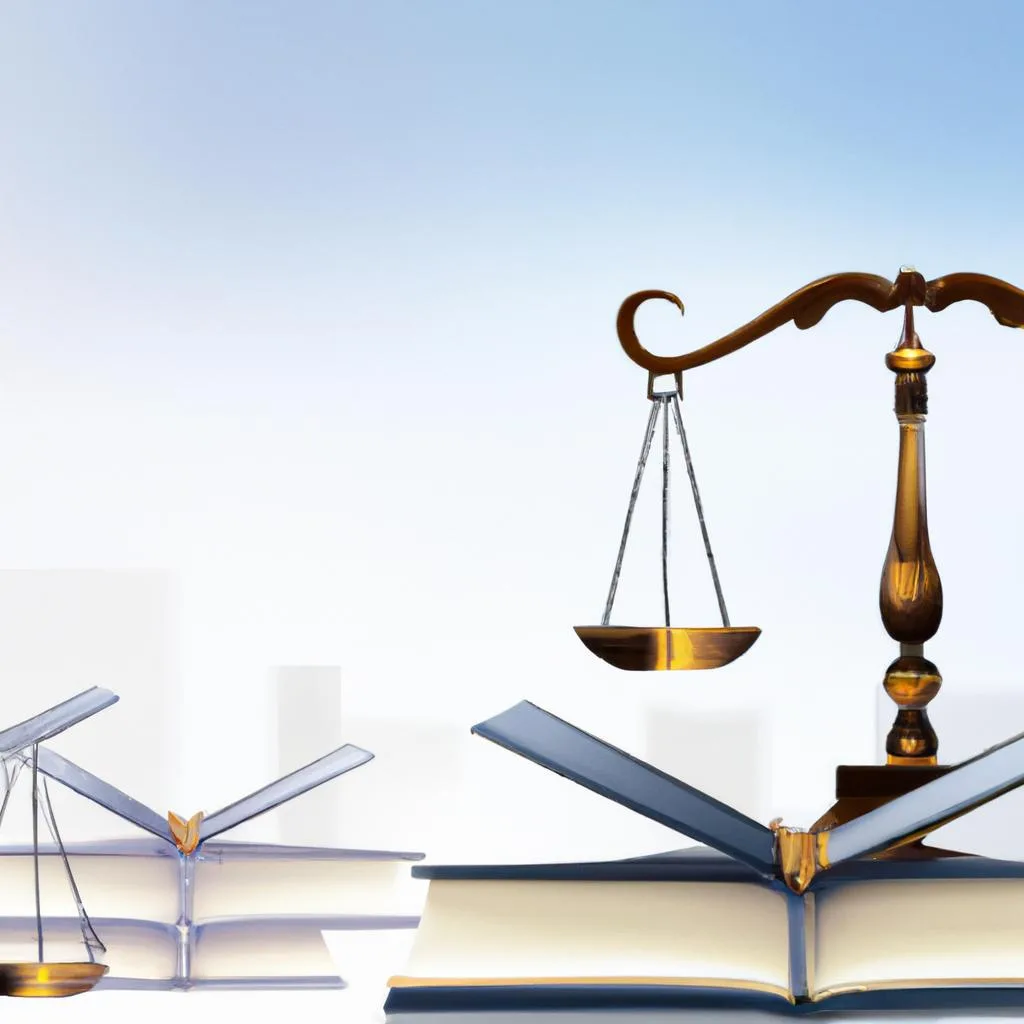In a world where trust forms the cornerstone of all relationships, the ability to discern who is worthy of our confidence is a vital skill. As seasoned practitioners in legal matters, we at Morgan Legal Group understand the importance of trust in fostering successful outcomes. This article delves into the intricacies of identifying when trust is lacking and provides insights on navigating situations where doubt looms . Join us as we explore the telltale signs that signal a lack of trustworthiness in individuals and equip yourself with the tools needed to protect your interests.
Signs of Untrustworthiness in Individuals
When dealing with individuals, it is crucial to identify signs of untrustworthiness. One of the most telling signs is inconsistency in their words and actions. If someone says one thing but consistently does another, it may be a red flag that they cannot be trusted. Additionally, individuals who constantly shift blame onto others and refuse to take responsibility for their actions are often not reliable.
Another indicator of untrustworthiness is a lack of transparency. If someone is secretive about their motives, actions, or intentions, it can be difficult to trust them. Moreover, individuals with a history of deception or dishonesty should be approached cautiously. Trust is built on honesty, integrity, and consistency, so it is essential to pay attention to these qualities when evaluating an individual’s trustworthiness.
Behavioral Red Flags that Indicate a Lack of Trustworthiness
When assessing someone’s trustworthiness, paying attention to behavioral red flags that may indicate a lack of reliability is essential. These clues can help you determine whether you should trust an individual or proceed with caution:
- Inconsistencies: If someone’s words and actions don’t align, it could be a sign that they are not being truthful or reliable.
- Lack of Accountability: Individuals who refuse to take responsibility for their actions or constantly shift blame onto others may not be trustworthy.
- Secretive Behavior: Keeping secrets or being evasive about certain topics could suggest that someone has something to hide.
By being mindful of these behavioral red flags, you can better assess whether someone is trustworthy or not. Trust is crucial to any relationship, especially regarding legal matters such as estate planning and probate. If you have concerns about the trustworthiness of someone involved in these processes, it may be wise to seek the guidance of a legal professional like Morgan Legal Group in New York City.
Analyzing Credibility and Integrity in Personal Relationships
Regarding personal relationships, credibility and integrity are crucial factors that determine an individual’s trustworthiness. Trust is the foundation of any healthy relationship, whether it be with a partner, friend, or family member. It is essential to analyze the behavior and actions of the people in our lives to ensure they are honest and reliable.
One way to determine if you can trust someone is to pay attention to their consistency in words and actions. If someone repeatedly makes promises but fails to follow through, it may be a red flag that they are not credible. Additionally, observe how they treat others and handle conflicts; a person who lacks integrity is likely to engage in dishonest or manipulative behavior. Trust is earned over time by demonstrating honesty, reliability, and transparency in all interactions.
Strategies for Identifying and Handling Untrustworthy Individuals
When it comes to dealing with untrustworthy individuals, it’s crucial to be able to recognize the warning signs and take appropriate action. One key strategy is to pay close attention to inconsistencies in their behavior. **Untrustworthy individuals may exhibit erratic or suspicious actions, such as frequently changing their story or avoiding direct questions.** It’s also important to listen to your gut instincts – if something feels off or too good to be true, it’s worth investigating further.
Another effective strategy is to conduct thorough background research on the individual in question. **This can include checking their references, conducting a criminal background check, and verifying any credentials they claim to have.** Additionally, be cautious of individuals who pressure you into making quick decisions or who try to isolate you from friends and family. By staying vigilant and taking proactive steps, you can protect yourself from falling victim to untrustworthy individuals.
Q&A
Q: How do you know if you can’t trust someone?
A: Trust is a delicate thing, often difficult to determine. However, some signs can suggest a lack of trustworthiness in an individual.
Q: What red flags indicate you can’t trust someone?
A: Some red flags include inconsistent behavior, dishonesty, lack of empathy, and a history of betraying others’ trust.
Q: How can past experiences influence our ability to trust others?
A: Past experiences can shape our perception of trust. If we have been betrayed or hurt in the past, we may be more hesitant to trust others in the future.
Q: Is it possible to rebuild trust once it has been broken?
A: Rebuilding trust takes time and effort from both parties involved. It requires open communication, honesty, and a genuine desire to mend the relationship.
Q: Can intuition play a role in determining whether or not to trust someone?
A: Intuition can be a powerful tool for assessing trustworthiness. Sometimes, our gut feelings can alert us to potential red flags before consciously recognizing them.
Q: How important is trust in relationships, both personal and professional?
A: Trust is the foundation of any healthy personal or professional relationship. Without trust, relationships can crumble, and communication can break down. It is essential for creating a strong and lasting bond between individuals.
Future Outlook
In conclusion, recognizing when you can’t trust someone can be a complex and nuanced process. By paying attention to their actions, consistency, and how they make you feel, you can start to differentiate between those with your best interests and those who may not be worthy of your trust. It’s always important to listen to your instincts and set boundaries to protect yourself. Trust is a precious gift, so use it wisely. Remember, walking away from relationships and situations where trust is lacking is okay. Your well-being and peace of mind are always worth it. Trust yourself, trust your judgment, and trust that you deserve to be surrounded by individuals who truly have your back.
Trust is a crucial component in any relationship, whether personally or professionally. It’s what binds people together and allows them to form strong and meaningful connections. However, trust can also be easily broken; once it’s shattered, it can be hard to repair. A lack of trust can lead to doubts, conflicts, and even relationship breakdowns. But how do you know if you can’t trust someone? In this article, we’ll explore the signs that indicate someone may not be trustworthy and what you can do to protect yourself in such situations.
Signs that indicate someone may not be trustworthy
1. They have a history of dishonesty
The most obvious red flag that someone may not be trustworthy is if they have a history of dishonesty. If they have lied to you, they will do it again. It’s essential to pay attention to behavior patterns, especially if you notice a consistent pattern of dishonesty. This could be in white lies, half-truths, or even elaborate deception. If you feel like you can’t trust someone, it’s likely because they have given you a reason not to trust them in the first place.
2. They lack accountability
A trustworthy person takes ownership of their actions and is accountable for their mistakes. On the other hand, someone who can’t be trusted may deflect responsibility or always find someone else to blame for their faults. They may make excuses, justify their actions, or refuse to take any accountability. This behavior indicates a lack of integrity and suggests they may not have your best interests at heart.
3. They have a history of betraying others
Pay attention to how someone treats their relationships with others. If they have a track record of betraying friends, colleagues, or partners, it’s a warning sign that they may not be a reliable person to confide in. Someone who consistently breaks trust with others is likely to repeat the behavior in any relationship they have. It’s crucial to approach such people with caution and guard yourself against potential betrayal.
4. They are inconsistent in their words and actions
A trustworthy person will be consistent in their words and actions. They will follow through on their promises, and their behavior will align with what they say. On the contrary, someone who can’t be trusted may make grand promises but fail to deliver. They may also show a lack of follow-through on their commitments, causing you to doubt their reliability and intentions. Inconsistency in words and actions is a red flag that someone may not be trustworthy.
5. They are overly secretive
Open communication is a crucial aspect of any healthy relationship. If someone is overly secretive and guards their every move, it could be a sign that they have something to hide. While everyone deserves privacy, excessive secrecy can create doubts and erode trust. If someone is not willing to share basic information about themselves or their activities, it may indicate they have something to hide.
6. They try to manipulate or control you
Someone who can’t be trusted may try to manipulate or control you to suit their agenda. They may use guilt, fear, or even flattery to get what they want from you. If someone is trying to control your actions or decisions, it’s a red flag that they may not have your best interests at heart. Healthy relationships are built on mutual respect and trust, not on manipulation and control.
7. They are dismissive of your concerns
If you express concerns or doubts about someone and they brush them off or dismiss them, it clearly indicates that they don’t value your feelings or opinions. A trustworthy person will take your concerns seriously and try to address them. If someone continuously dismisses your concerns, it could be because they have something to hide or are not interested in maintaining trust with you.
8. They avoid taking responsibility for their actions
When someone breaks your trust, the natural response would be for them to acknowledge their mistake and work towards rectifying it. However, someone who can’t be trusted may avoid taking responsibility for their actions and may even blame you for their wrongdoing. This behavior shows a lack of remorse and a disregard for the consequences of their actions, which can be toxic in any relationship.
Practical tips for dealing with someone you can’t trust
– Communicate openly and express your feelings: If you have doubts about someone’s trustworthiness, communicate your concerns openly and honestly. Let them know how their behavior is impacting you, and listen to their side as well. Honesty is key in building or rebuilding trust.
– Set and stick to them: Setting boundaries is crucial when dealing with someone you can’t trust. Be clear about what behavior is and isn’t acceptable to you, and stick to your boundaries. This will help protect you from further betrayal.
– Observe and document: If you have doubts about someone’s trustworthiness, it’s important to observe their behavior and document any patterns you notice. This will help you make a well-informed decision about the relationship’s future.
– Seek support from others: If you’re dealing with someone you can’t trust, it can be helpful to seek support from friends, family, or a therapist. Talking to others can provide a different perspective and help you navigate the situation effectively.
Conclusion
Trust is earned and should never be taken for granted. If someone has broken your trust, it’s up to you to decide whether you want to give them a second chance. Remember that trust takes time to build, but it can be quickly shattered. Pay attention to the warning signs and trust your instincts. Protecting yourself and your well-being is crucial if someone consistently shows untrustworthy behavior. Remember that you deserve to be surrounded by people who value and respect your trust.







